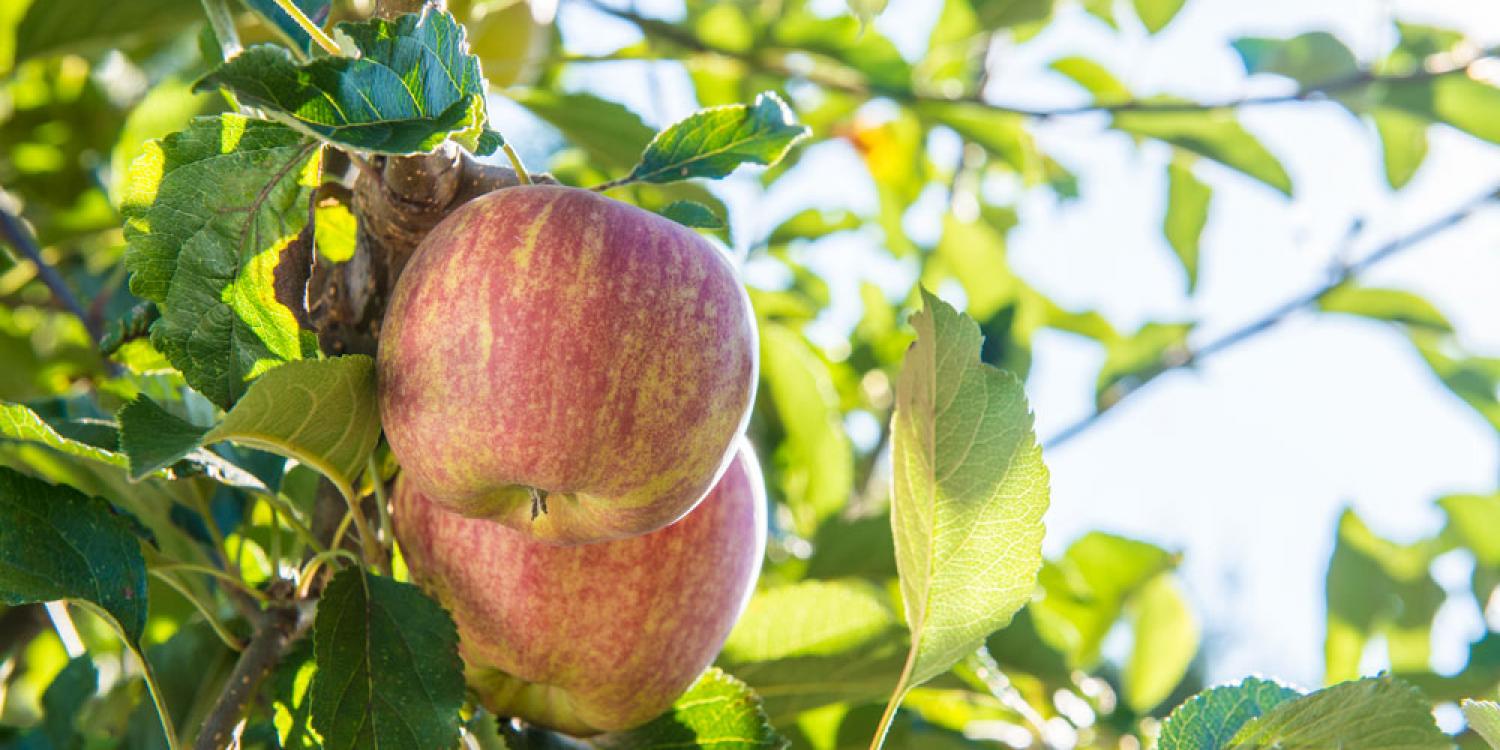
The popularity of fruit trees for home gardens continues to grow. Gardeners can’t get enough, and apples and pears top the list of must-have trees. But codling moth, the most devastating of pests for these fruits, can quickly dampen enthusiasm. At the OSU Extension Service office in Deschutes County, hundreds of calls have come in about how to manage codling moths.
Backyard growers may be able to grasp the idea that successful management is directly related to temperature and the life cycle of codling moth, but many lack confidence in their knowledge of when and how to manage this pest. Enter Project Happy Apples, an Extension program meant to assist gardeners in managing this persistent pest. The goal is threefold: to increase knowledge of when to monitor and manage for codling moth; to increase confidence in purchasing tools and using integrated pest management (IPM) strategies; and to help participants reduce codling moth populations in their fruit.
Participants sign up to get email notifications or go to the Project Happy Apples website. They get access to specific dates for when to take action; find photos of the pest and its lifecycle; a list of tools and supplies for management; and the pros and cons of different IPM methods.
The dates for managing codling moth vary from year to year as their life cycle is dependent on weather. Project Happy Apple helps take the guesswork out of knowing when to manage for codling moth. Within two years, 479 people signed up. Ideally, now that project participants are armed with knowledge on timing and tools, they will integrate successful IPM programs, cut back on pesticide use, and reduce codling moth damage in their home orchards.